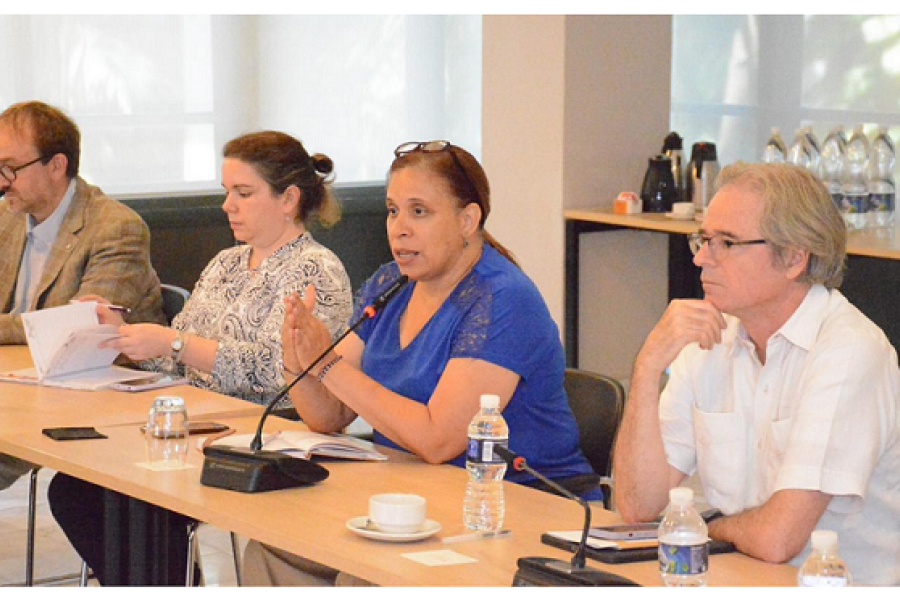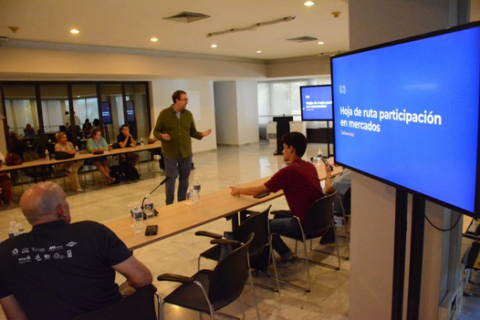
Cuba advances in its preparation to participate in carbon markets
Energy transition, blue carbon, legal and organizational frameworks, and the current market landscape were some of the key topics discussed during three days of preparatory sessions aimed at developing a roadmap for Cuba's work in the field of carbon markets.
With the participation of various Cuban institutional actors under the coordination of the Ministry of Science, Technology, and Environment, the meetings brought together scientific, political, commercial, legal, and organizational representatives within the framework of the Climate Promise project, as part of a specialized advisory exercise supported by the United Nations Development Program (UNDP).
The sessions continued the exchanges between the Financial Innovation and Energy Laboratory and the Temporary Working Group on Carbon Markets. Officials from the Ministry of Energy and Mines and the Ministry of Economy and Planning participated, as well as representatives from various Cuban agencies responsible for legislation, forestry, agriculture, protected areas, fisheries, banking, and other areas.
Odalys Goicochea, Director General of the Environment at Citma, stated that, following the approval of its Nationally Determined Contribution, Cuba has taken accelerated steps to generate solutions for participation in this financial mechanism, emphasizing its contribution to key issues such as the transition to renewable energy sources, energy efficiency, and sustainable ecosystem management.

Fernando Hiraldo, UNDP Resident Representative in Cuba, emphasized at the meetings that the organization will support the country in creating an enabling framework for its fair and beneficial participation in these systems, in line with global standards.
The three-day meeting was advised by the specialized consulting firm NEYEN, with experience in integrating countries into effective agreements on this topic.
Carbon markets are financial exchange mechanisms that allow participating countries and entities to promote their greenhouse gas emissions mitigation solutions, in accordance with the Paris Agreement and the contributions declared by each nation.
Each country's carbon removal potential can thus contribute to global climate change mitigation goals and, in return, receive fair compensation that allows them to continue their development in accordance with their environmental sustainability goals.
The first session was attended by José Fidel Santana, First Deputy Minister of the Ministry of Science, Technology and Environment.
The Climate Promise project is supported by the Spanish Agency for International Development Cooperation (AECID).
Taken from UNDP



